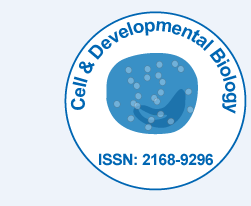
செல் & வளர்ச்சி உயிரியல்
திறந்த அணுகல்
ஐ.எஸ்.எஸ்.என்: 2168-9296

ஐ.எஸ்.எஸ்.என்: 2168-9296
Eric SC Kwok and Marilyn Silva
Background: Due to widespread usage, the general public including pregnant women is routinely exposed to the fungicides, Ortho-Phenylphenol (OPP) and Sodium Ortho‑Phenylphenate (SOPP), from many sources. Previous data reviews concluded no effects on development or reproduction in animal studies but upon re-analysis we realize that alternative interpretation may exist.
Methods: Developmental and reproductive effects were assessed from studies performed in rats, mice, and rabbits. We identified the most sensitive endpoint(s) for OPP or SOPP as they related to fetal developmental or reproductive toxicity. For quantifying the potential health risk associated with the exposure to OPP or SOPP, we used the lowest dose that caused no developmental or reproductive toxicity or benchmark dose analysis.
Results: Developmental effects in OPP-treated rats and mice were decreased fetal body weight, increased incidences in delayed skeletal ossification and post‑implantation loss. In addition, fetal mice exposed to SOPP exhibited malformation. Similar to rats and mice, post‑implantation loss was the developmental effect noted in OPPtreated rabbits. Except for the rats, maternal toxicity appeared to be minimal (mice) or not observed (rabbits) at the lowest dose where developmental effects occurred (mice: cleft plate; rabbits: resorptions). We did not find evidence of OPP affecting reproductive functions but significant deviations from FIFRA Guidelines in these studies may prevent adequate assessment of the reproductive toxicity especially the effects on fertility and mating.
Conclusions: The revised data analysis suggests that OPP and SOPP induce fetal toxicity in the absence of maternal effects. Our re-evaluation would be useful in the formulation of a current or updated regulatory strategy for the developmental toxicity of OPP and SOPP.